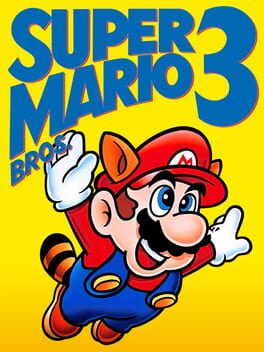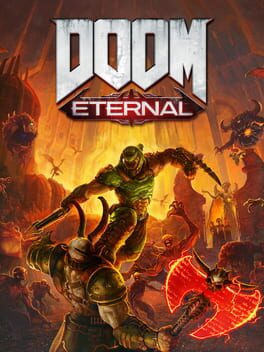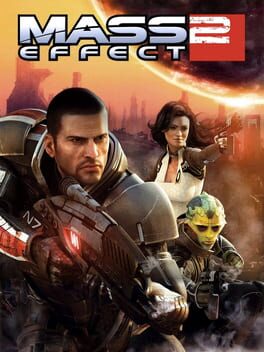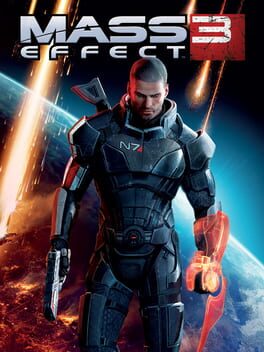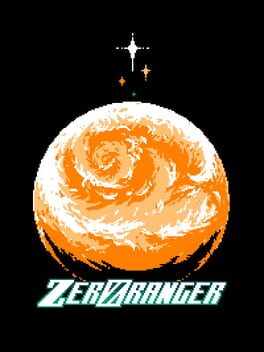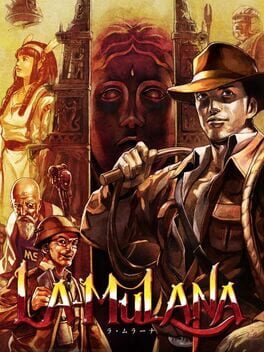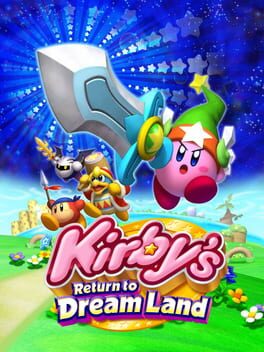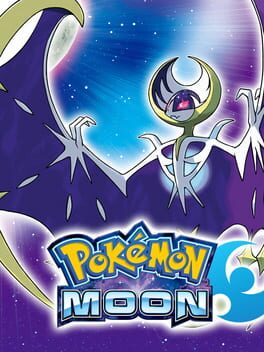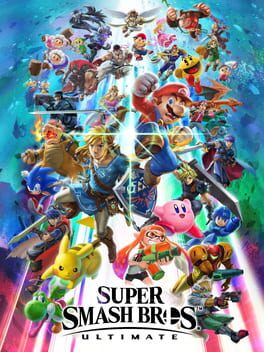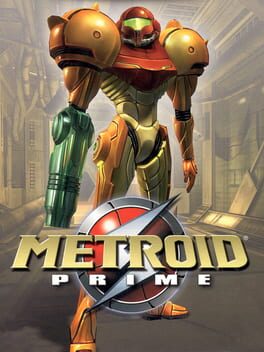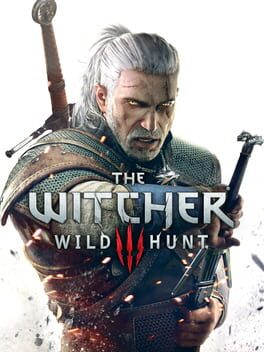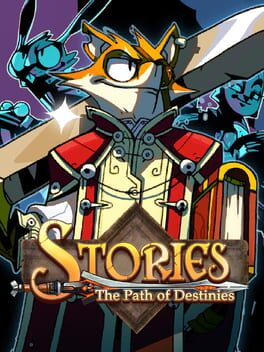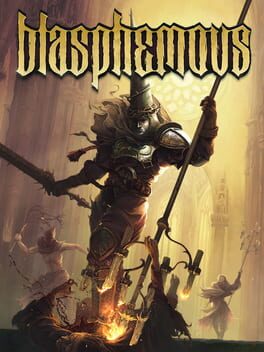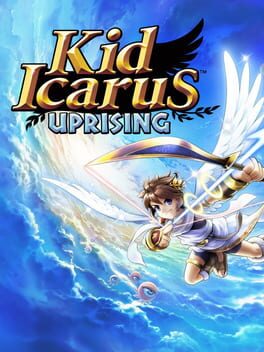LunaEndlessWitch
1988
The titular essential 2D platformer that most people who play any sort of Nintendo game know of with great praise. It definitely holds up to most of the scrutiny vs. other 2d platformers done by the Nintendo EAD team but nonetheless it is still marred in very limited level design of the era. While Mario is fun to control and utilize and holds a lot of depth of traversal especially with the new Super Leaf, certain worlds like Ice and Sky land especially have very boring level structures involving anywhere from autoscrollers to moving around the same level finding the pipe that allows you to exit. Not to mention that the Super Leaf in of itself invalidates a lot of the levels you're able to use it in. It still holds the charm of what it was in the year it came out in, and honestly speedrunning the game still withholds a lot of value. Otherwise though I'd say it's a very middling experience. (6/10)
2020
iD Software should probably go down as one of the best set of devs in history, because they have made a work so excellently crafted in its design and innovative in use of arena fps mechanics that it's easily the best game that has come out of this year so far as well as one of the best of all time. It manages to take every single lesson that needed to be learned from Doom 2016's failings and applied a perfect fix from a top-down level.
I've never played a singular fps that kept my adrenaline pumping at full blast for most of the way through, with encounter design so phenomenally set teeming with particular enemies that make true on its core gameplay loops. Doom Eternal juggles loops of resource management, enemy prioritization, and utilization of movement all intertwined to each individual enemy. From the Arachnotron, probably the best enemy of the lot that forces you to utilize its weak points while it dodges your fire and pressures you down, to the Cyber Mancubi, each enemy makes use of your weapon variety and asks for the best play you can muster especially on Nightmare difficulty (which I played on the whole way through). The waves are also set perfectly to where as you take heavy enemies down there's new challenges to surprise you, with especially the slayer gates and later levels showing the best of this wave design.
The weapon balance and depth is also excellent, with two alt fire mods you can swap with that each bring their own costs and benefits, as well as the resource grind constantly asking you to use your entire loadout. Good play isn't just tuned to dodging enemy fire and spacing yourself correctly, but also utilizing every single weapon to their fullest extent while keeping track of loot pinatas to keep yourself in the midst of carnage. You'll know when you're in the zone when you're hook jumping into the air and constantly keeping yourself up above them dashing and jumping as you pelt rocket damage down upon your foes. If you have a single thing not on cooldown you're not using everything that you have.
That's probably the most ridiculous component that iD managed to do, the huge complexity that the game slowly eases you in before letting you become a walking one man army of rip and tear. The pacing of unlocks is fine tuned to where you're always getting something new from level to level to play around with, with excellent tutorializing that makes sure you have the knowledge you need to play efficiently and work on mastering your kit.
Music and aesthetics are also fantastic, with every single level looking amazing compared to Doom 2016's mostly same-y color palette. This is probably Mick Gordon's best work too banging in the background, especially with its remixes of 2016's great hits and the final level keeping that blood pumping. Probably going to be listening to it long after I'm done replaying the game.
There are of course, some miscellaneous and weak components for a game so ambitious in its design and extremely accessible. The platforming serves as nice downtime to let your blood cool down, although some of it especially the swimming portions being kind of boring if not impeding on the nonstop joyride. Ideally I'd probably layer the mostly-and-intentionally-nonsensical codex-loaded story to be cutscenes between combat to give you downtime if you need it and allow them to be completely skippable, with some walking if out of dev time. Not that I don't appreciate some of the environments and sense of scale that you walk through, but one specific level i.e. Sentinel Prime seems almost like a weird pacebreaker that could've used way more over time development.
There's also some overtuning and balance issues in some places. The Marauder, while I can find him somewhat inoffensive, makes you play a different game. When you've killed all the rest of the heavies and he's the last one left, you play Sekiro and just time your shit to kill him. He's not an interesting enemy and I'd prefer better use of Archviles to force you into a "deal with this enemy while you fight the others" instead. Also some of the weak point exploits are too powerful, with Cacodemons especially taking one sticky or rocket to make them nothing. The bosses also ALL SUCK, and either need complete reworks or wayyyy more dev time to make them interesting and fun to fight. I give a pass to the Icon of Sin for being an amazing spectacle but even his fight is twice as long as it needed to be, serving as a bfg dump that's one phase too long.
Other combat issues: The BFG, Unmakyr, and Crucible are underdeveloped, although at least they're easily ignored. I can kinda get it with the BFG and Unmakyr, one's pretty much a get out of jail free card that requires no skill to use other than uhh don't hit a wall loser, and the other is a close range meltbox. I just wish the ammo was either one per level at MOST or in a different mode entirely (like a survival mode! they'd work like shmup bombs), because while they don't exactly make encounters entire jokes they do undercut the design by a significant margin. The crucible especially is probably the biggest disappointment. You have a whole level building up this sword that you craft over time, and all it does is IK for 3 pips, a get-this-heavy-off-me weapon with only one move. It could've been a way more fleshed out weapon with more utility and less breaking the game.
At the end of the day though I can't deny that this is not only the best fps game I've played but maybe even my all time favorite action game. These issues are something I can tolerate on my own, and the game gives free reign to fine tune a lot of the elements yourself. It's ridiculously accessible. I look forward to the dlc, and I think the rest of this year nay the decade has a lot to live up to after this. (10/10)
I've never played a singular fps that kept my adrenaline pumping at full blast for most of the way through, with encounter design so phenomenally set teeming with particular enemies that make true on its core gameplay loops. Doom Eternal juggles loops of resource management, enemy prioritization, and utilization of movement all intertwined to each individual enemy. From the Arachnotron, probably the best enemy of the lot that forces you to utilize its weak points while it dodges your fire and pressures you down, to the Cyber Mancubi, each enemy makes use of your weapon variety and asks for the best play you can muster especially on Nightmare difficulty (which I played on the whole way through). The waves are also set perfectly to where as you take heavy enemies down there's new challenges to surprise you, with especially the slayer gates and later levels showing the best of this wave design.
The weapon balance and depth is also excellent, with two alt fire mods you can swap with that each bring their own costs and benefits, as well as the resource grind constantly asking you to use your entire loadout. Good play isn't just tuned to dodging enemy fire and spacing yourself correctly, but also utilizing every single weapon to their fullest extent while keeping track of loot pinatas to keep yourself in the midst of carnage. You'll know when you're in the zone when you're hook jumping into the air and constantly keeping yourself up above them dashing and jumping as you pelt rocket damage down upon your foes. If you have a single thing not on cooldown you're not using everything that you have.
That's probably the most ridiculous component that iD managed to do, the huge complexity that the game slowly eases you in before letting you become a walking one man army of rip and tear. The pacing of unlocks is fine tuned to where you're always getting something new from level to level to play around with, with excellent tutorializing that makes sure you have the knowledge you need to play efficiently and work on mastering your kit.
Music and aesthetics are also fantastic, with every single level looking amazing compared to Doom 2016's mostly same-y color palette. This is probably Mick Gordon's best work too banging in the background, especially with its remixes of 2016's great hits and the final level keeping that blood pumping. Probably going to be listening to it long after I'm done replaying the game.
There are of course, some miscellaneous and weak components for a game so ambitious in its design and extremely accessible. The platforming serves as nice downtime to let your blood cool down, although some of it especially the swimming portions being kind of boring if not impeding on the nonstop joyride. Ideally I'd probably layer the mostly-and-intentionally-nonsensical codex-loaded story to be cutscenes between combat to give you downtime if you need it and allow them to be completely skippable, with some walking if out of dev time. Not that I don't appreciate some of the environments and sense of scale that you walk through, but one specific level i.e. Sentinel Prime seems almost like a weird pacebreaker that could've used way more over time development.
There's also some overtuning and balance issues in some places. The Marauder, while I can find him somewhat inoffensive, makes you play a different game. When you've killed all the rest of the heavies and he's the last one left, you play Sekiro and just time your shit to kill him. He's not an interesting enemy and I'd prefer better use of Archviles to force you into a "deal with this enemy while you fight the others" instead. Also some of the weak point exploits are too powerful, with Cacodemons especially taking one sticky or rocket to make them nothing. The bosses also ALL SUCK, and either need complete reworks or wayyyy more dev time to make them interesting and fun to fight. I give a pass to the Icon of Sin for being an amazing spectacle but even his fight is twice as long as it needed to be, serving as a bfg dump that's one phase too long.
Other combat issues: The BFG, Unmakyr, and Crucible are underdeveloped, although at least they're easily ignored. I can kinda get it with the BFG and Unmakyr, one's pretty much a get out of jail free card that requires no skill to use other than uhh don't hit a wall loser, and the other is a close range meltbox. I just wish the ammo was either one per level at MOST or in a different mode entirely (like a survival mode! they'd work like shmup bombs), because while they don't exactly make encounters entire jokes they do undercut the design by a significant margin. The crucible especially is probably the biggest disappointment. You have a whole level building up this sword that you craft over time, and all it does is IK for 3 pips, a get-this-heavy-off-me weapon with only one move. It could've been a way more fleshed out weapon with more utility and less breaking the game.
At the end of the day though I can't deny that this is not only the best fps game I've played but maybe even my all time favorite action game. These issues are something I can tolerate on my own, and the game gives free reign to fine tune a lot of the elements yourself. It's ridiculously accessible. I look forward to the dlc, and I think the rest of this year nay the decade has a lot to live up to after this. (10/10)
2010
BioWare's second incarnation of their scifi soap opera hits an incredible amount of highs over its last game despite being marred in incredibly rushed productions due to their distinct change of priorities. The characters this time around are incredible, each with strong faceted personalities and motivations (with an exception or two) that end up turning the game in general to a character study. It suitably reflects the idea of preparation for a suicide mission. The story however is a large step down from the previous one, to a point of complete melodrama that inadvertently makes the trilogy's story hard to take seriously. That being said, the character focus mitigates this issue and the worldbuilding is just as strong as it was previously although with a couple retcons. The gameplay is tolerable this time around but nothing really exciting, and I highly recommend setting the difficulty as easy as possible so it can be widely ignored. Its core TPS combat is too shallow and the enemy design too simple to justify the amount you do otherwise. As a finishing note, I also highly recommend the DLCs for the Shadow Broker as well as Kasumi, both having two strong character additions that feel core to the experience. (8/10)
2012
The climax of BioWare's trilogy is in short, the weakest game I've played from the studio so far. Not that it doesn't have its strengths, the base combat is decent fun with more interesting shooting galleries and area utilization, some of the conclusions of characters are genuinely well written, and the Citadel DLC gets nothing but utmost praise from me. However, it is an absolute clusterfuck when it comes to any other particular component. The story while conceptually from a good place regarding the crucible and the theme of cyclical generations working together to stop a greater evil, it is paperthin written and it's collaborated with terrible new characters and terrible explanations. The Omega and Leviathan DLC especially gets my utmost distaste, representing the worst parts Mass Effect 3 has on offer, including anticlimactic endings to decent concepts with strewn into paper mache characters.
That said, I still enjoyed the game overall if only for my attachment to the world already and how it still makes true on its characters. I'm also weak to romancing Garrus, sue me. If you have half a mind to get this game you won't do too wrong, but I push against anyone buying ME3 without investment in the series already.
That said, I still enjoyed the game overall if only for my attachment to the world already and how it still makes true on its characters. I'm also weak to romancing Garrus, sue me. If you have half a mind to get this game you won't do too wrong, but I push against anyone buying ME3 without investment in the series already.
2018
WARNING
MAY YOU ATTAIN ENLIGHTENMENT:
1: BLAZING BLOODLINES
2: TOUCH THE UNTOUCHABLE
3: BREAK THE UNBREAKABLE
I'll preface that I've never been one to completely grasp the appeal of a shmup. That genre in general can get too masocore for me especially from the touhou games I've sampled. That being said, ZeroRanger comes along and blows any expectation I had of the genre altogether. The green orange aesthetic is excellent and it is positively gorgeous in artstyle and music. It borrows heavily from buddhist philosophy to generate a strong NEVER GIVE UP energy the likes of which I haven't felt genuinely since Tengen Toppa Gurren Lagann. The gameplay is stellar, featuring intensely strong bullet patters and tight enemy and boss designs. Best ones of note are 1-2's claustrophobic danger zones, 1-4's grueling maze that requires pinpoint positioning and on-the-fly routing, and literally everything about 2-3's boss. For those experienced with shmups the exemplary mechanic here is your ability to use the gundam version to slash/drill away bullets and clever use of swapping between gundam and ship format gives interesting strategy for top score runs.
Since I also suck, this game throws me a bone with an increasing amount of continues, which is justified by encouraging score-heavy runs and a final final boss that your continues won't be enough to save you if you're not ready. There are however a couple issues, specific really to the bullet patterns having a very clear cap on complexity and that it doesn't get nearly as hard as shmups of its ilk. There is a hard mode on the way and some sort of second campaign in development which could in theory fix this issue but for what it is right now it hits my standard. I absolutely adored my time with it.
MAY YOU ATTAIN ENLIGHTENMENT:
1: BLAZING BLOODLINES
2: TOUCH THE UNTOUCHABLE
3: BREAK THE UNBREAKABLE
I'll preface that I've never been one to completely grasp the appeal of a shmup. That genre in general can get too masocore for me especially from the touhou games I've sampled. That being said, ZeroRanger comes along and blows any expectation I had of the genre altogether. The green orange aesthetic is excellent and it is positively gorgeous in artstyle and music. It borrows heavily from buddhist philosophy to generate a strong NEVER GIVE UP energy the likes of which I haven't felt genuinely since Tengen Toppa Gurren Lagann. The gameplay is stellar, featuring intensely strong bullet patters and tight enemy and boss designs. Best ones of note are 1-2's claustrophobic danger zones, 1-4's grueling maze that requires pinpoint positioning and on-the-fly routing, and literally everything about 2-3's boss. For those experienced with shmups the exemplary mechanic here is your ability to use the gundam version to slash/drill away bullets and clever use of swapping between gundam and ship format gives interesting strategy for top score runs.
Since I also suck, this game throws me a bone with an increasing amount of continues, which is justified by encouraging score-heavy runs and a final final boss that your continues won't be enough to save you if you're not ready. There are however a couple issues, specific really to the bullet patterns having a very clear cap on complexity and that it doesn't get nearly as hard as shmups of its ilk. There is a hard mode on the way and some sort of second campaign in development which could in theory fix this issue but for what it is right now it hits my standard. I absolutely adored my time with it.
2012
Metroidvanias reportedly on suicide watch until they can make every single room matter as much as they do for Nigoro's masterpiece. I am excited at the prospect of anyone attempting to match this phenomenal combination of archaeological puzzle design, simple but deep platforming structure, masterful map design all interconnected between each other in ways that make sense logically and in the sake of the story, music that is absolute fire on every cylinder, and tight boss design. (10/10)
I enjoy this game more than I probably should. It's a solid encapsulation of joyful playlike platforming, and there's not much out there that captures it like Kirby in general. It manages to hook me with its exemplary artstyle, complemented by what I personally would say is the strongest soundtrack a Kirby game has received. It's as simple as anyone would expect to play, held up by good level design and godlike charm. Kirby's Return to Dream Land is a charming fun adventure and there's not much to dig into it other than that. It doesn't NEED to have anymore than that.
2016
I'd like to know who at Game Freak was personally stalking me when they decided to make a game that directly appeals to everything I like about Pokemon campaigns. It's a smartly designed decision that this game came out, because it knows exactly what a Pokemon campaign's strengths are. Sun/Moon doubles down on the worldbuilding Pokemon is so good at, in fact I'd say it pretty much just is the game. It's constantly about Alola, every new pokemon design and area bleeding the personality and culture of the region and it never really lets up even till the end. It didn't have to end there either, Sun/Moon actually brings in a story worth a damn, all wrapped around family values concerning Lillie and Lusamine, finishing in a clash that really delves deep into empty nest syndrome.
There's a very obvious side effect of all this, and that's that you can't move probably 30 minutes without being wrapped into a cutscene. Personally I think this is fine because I prefer my Pokemon campaigns to be roller coasters since I never truly enjoy the full customization experience to last an entire 30 hours due to AI teams being incompetent enough for me to always bulldoze over them. But I do understand where people will find this an issue that walls them off from caring about the game.
That being said, I do have one more positive to cover. Sun/Moon actually attempts to have PvE rather than PvP. While I would like to cover it in a full article, to summarize briefly a main problem with Pokemon campaigns from a gameplay center is that they hit a bottleneck by conforming to AI teams. Pokemon's combat systems are practically entirely designed for a real player vs player experience where it's structured around mind games and dazzling team combinations that catch the opponent off guard, creating a neutral game where each side has to understand and infer what the other side will do next with their Pokemon. That's entirely how competitive Pokemon works and it's completely missing in the base game, where AIs are so simple that they can be bulldozed by type advantage or overwhelming numbers. This issue can be mitigated by stronger Pokemon teams but what's a way way better solution is to throw out the middleman and try to make a PvE experience that uses Pokemon combat as a base to be built atop of.
And this is what Sun/Moon succeeds at, mostly. Totem Pokemon require you to make enemy-specific strategies and brute forcing requires more effort than just leveling. This comes to a head especially in the sequel where Ultra Necrozma which is practically a playwall that demands a fundamental understanding of a lot of Pokemon's combat so that you can 'cheese' it. It's not perfect, it's a very weak step forward but a step forward nonetheless.
Overall I find Sun/Moon to be the best a singleplayer Pokemon game has been, mostly since it scratches each itch I have for a Pokemon campaign and that it has a powerful soul and heart to every hour of playtime. Also Gen 7 competitive is good enough to elevate that.
There's a very obvious side effect of all this, and that's that you can't move probably 30 minutes without being wrapped into a cutscene. Personally I think this is fine because I prefer my Pokemon campaigns to be roller coasters since I never truly enjoy the full customization experience to last an entire 30 hours due to AI teams being incompetent enough for me to always bulldoze over them. But I do understand where people will find this an issue that walls them off from caring about the game.
That being said, I do have one more positive to cover. Sun/Moon actually attempts to have PvE rather than PvP. While I would like to cover it in a full article, to summarize briefly a main problem with Pokemon campaigns from a gameplay center is that they hit a bottleneck by conforming to AI teams. Pokemon's combat systems are practically entirely designed for a real player vs player experience where it's structured around mind games and dazzling team combinations that catch the opponent off guard, creating a neutral game where each side has to understand and infer what the other side will do next with their Pokemon. That's entirely how competitive Pokemon works and it's completely missing in the base game, where AIs are so simple that they can be bulldozed by type advantage or overwhelming numbers. This issue can be mitigated by stronger Pokemon teams but what's a way way better solution is to throw out the middleman and try to make a PvE experience that uses Pokemon combat as a base to be built atop of.
And this is what Sun/Moon succeeds at, mostly. Totem Pokemon require you to make enemy-specific strategies and brute forcing requires more effort than just leveling. This comes to a head especially in the sequel where Ultra Necrozma which is practically a playwall that demands a fundamental understanding of a lot of Pokemon's combat so that you can 'cheese' it. It's not perfect, it's a very weak step forward but a step forward nonetheless.
Overall I find Sun/Moon to be the best a singleplayer Pokemon game has been, mostly since it scratches each itch I have for a Pokemon campaign and that it has a powerful soul and heart to every hour of playtime. Also Gen 7 competitive is good enough to elevate that.
I was going to wait until the last DLC fighter was announced first, but since I'm just finishing up 100% of the achievement screen I feel like I might as well throw my hat in the Smash Ultimate pile.
It's alright. This is a 'quick review' but I'm going to have to take this step by step so there's some categorization here.
Spirits: This mode in particular isn't very good. It's pretty much an AI stomping ground fit for mostly weakish fanservice respective to every spirit. I guess for a fighting game campaign it's not too bad but I feel like I wasted a lot of my time bothering with it.
Fanservice/Party: As a party game Ultimate is pretty good, there's a lot of item combinations and the stages are all fun to play on. There's a shitton of fanservice for so many franchises that I don't know how the game is going to look when it finally goes golden with its roster after all the new additions. Just the music remixes and character reps alone give so much power to the game's legacy.
Gameplay: It's mediocre pure and simple. It's certainly stronger than Smash 4 but neutral game here is still a very safe endeavor and foxtrots are a ridiculously gutted dashdance. I don't like the movement while fighting and I certainly don't like playing as most of the fighters. Combo game is very restricted, thanks in no small part to them removing a shitton of grab combos and giving a big Fuck You to SDI which is a design decision I still don't get at all. Ultimate wants people to play by turns which is all good and fine but I didn't enjoy 90% of the roster's toolset due to how restrictive they all play. Compared to the likes of really any modern fg on the market it's incredibly lacking. There are exceptions ofc, I really like Ryu/Ken's special canceling taken over from SF, especially Terry's toolset. I also approve of Link's bomb zoning and spacing setups. I'm just far more a fan of slower paced fighting games that make up for its lack of APM with strong mindgames and decisionmaking but Ultimate seems to be very limited in scope of both due to the more streamlined options.
Overall I think it's a good party game and a mediocre fighting game. I think it's alright after spending roughly 200 hours trying to fashion out how I feel about it. If you're looking for a party game that plays well at a competitive level I highly suggest playing Duck Game instead
It's alright. This is a 'quick review' but I'm going to have to take this step by step so there's some categorization here.
Spirits: This mode in particular isn't very good. It's pretty much an AI stomping ground fit for mostly weakish fanservice respective to every spirit. I guess for a fighting game campaign it's not too bad but I feel like I wasted a lot of my time bothering with it.
Fanservice/Party: As a party game Ultimate is pretty good, there's a lot of item combinations and the stages are all fun to play on. There's a shitton of fanservice for so many franchises that I don't know how the game is going to look when it finally goes golden with its roster after all the new additions. Just the music remixes and character reps alone give so much power to the game's legacy.
Gameplay: It's mediocre pure and simple. It's certainly stronger than Smash 4 but neutral game here is still a very safe endeavor and foxtrots are a ridiculously gutted dashdance. I don't like the movement while fighting and I certainly don't like playing as most of the fighters. Combo game is very restricted, thanks in no small part to them removing a shitton of grab combos and giving a big Fuck You to SDI which is a design decision I still don't get at all. Ultimate wants people to play by turns which is all good and fine but I didn't enjoy 90% of the roster's toolset due to how restrictive they all play. Compared to the likes of really any modern fg on the market it's incredibly lacking. There are exceptions ofc, I really like Ryu/Ken's special canceling taken over from SF, especially Terry's toolset. I also approve of Link's bomb zoning and spacing setups. I'm just far more a fan of slower paced fighting games that make up for its lack of APM with strong mindgames and decisionmaking but Ultimate seems to be very limited in scope of both due to the more streamlined options.
Overall I think it's a good party game and a mediocre fighting game. I think it's alright after spending roughly 200 hours trying to fashion out how I feel about it. If you're looking for a party game that plays well at a competitive level I highly suggest playing Duck Game instead
2002
Retro Studios' first official foray into games in general is a great game as much as it is a fantastic step in 3D action-adventure that still holds up. There's lots of rocky issues that could've certainly used some ironing out like the world design being interconnected in very aloof uninteresting ways or how simple the mechanics still are, but what's here is still a monument in terms of one to one level design, exploration, and nonlinear worldbuilding. It's also capped off with probably one of a very few metroidvanias that actually requests that you took note of what you saw as you traveled (although not 100% gracefully done with a few keys that are in absolute what-the-fuck areas). While not particularly wowing it still holds such a strong grasp of level design pillars and atmospheric storytelling that it deserves a large part of the merit it gathers.
Breath of the Wild is probably the best rendition of nonlinear exploration in a 3D world I've had the benefit of playing so far, maybe even some of the best exploration structure and design in general. The way it encourages freeform make-your-own-story gameplay through its map design and incredibly deep Sheikah Slate systems that are arguably the best mechanical component of any Zelda game to date is something to be praised to hell and back. However that being said, it's still an incredibly messy game most likely due to how it had to re-contextualize a bunch of series staples into the massive freedom this game entails. The internet has really already summarized the base issues, but for clarity's sake I'll put my spin on each of them
Endurance for weapons is a great incentive for on-the-fly decisionmaking but ends up meaning very little after about 20 hours in
Shrines are a fantastic way to divy out rigid zelda puzzle design but just like rigid zelda puzzle design are still mostly fairly simple and uninteresting
Divine Beasts are great dungeons in terms of structure with their forced consideration on the player to think of the whole dungeon in a 3d space but are incredibly easy to solve even by brute force
It's surprisingly difficult in the beginning but has a huge reverse difficulty curve the more you explore, but at the very least this component is customizable depending on where you go.
With that out of the way, the physics system and exploration more than makes up for these pitfalls for a truly strong open world experience that will probably not be matched by a mainstream way for many years.
Endurance for weapons is a great incentive for on-the-fly decisionmaking but ends up meaning very little after about 20 hours in
Shrines are a fantastic way to divy out rigid zelda puzzle design but just like rigid zelda puzzle design are still mostly fairly simple and uninteresting
Divine Beasts are great dungeons in terms of structure with their forced consideration on the player to think of the whole dungeon in a 3d space but are incredibly easy to solve even by brute force
It's surprisingly difficult in the beginning but has a huge reverse difficulty curve the more you explore, but at the very least this component is customizable depending on where you go.
With that out of the way, the physics system and exploration more than makes up for these pitfalls for a truly strong open world experience that will probably not be matched by a mainstream way for many years.
Let it be on record that CD Projekt Red is a master at worldbuilding and narrative prose, which oozes out of every nook and cranny from White Orchard to Toussaint. That said they are probably too tied to the craft of making a genuine true-to-Geralt game that they intentionally cut down design decisions that would actually make the gameplay good.
Narratively, Witcher 3 stands atop very well if not completely amazing. The first Act of the story is decently well paced although the bits before Velen were uninteresting save for some bits of the fanservice to bookreaders that wasn't really enough to tide me over, but overall it's remarkably well written from the quest-tied sidequests to the entire arcs relegated to Novigrad and Skellige. The second Act is phenomenal, with one particular quest that is probably my favorite of the game because it also ties in the gameplay decently too. The third act however is a crock of utter shit and it's clear that the finale was a rushed first draft which is a real shame. But despite this, the cavalcade of great well fleshed out characters and remarkably well done prose left me more than satisfied upon finishing.
Gameplay wise, other than the strong world and map design it falls completely on its face. Combat ranges from Quen to win to potion knowledge tests that are not interesting to concoct or plan around. There are a few exceptions but generally the combat is so restrictive and asinine to pull off and especially with how often you do it that it brings the whole game down terribly. A major sticking point I'll throw as evidence against it is that you have no freedom over which animation Geralt uses when attacking any enemy. It's a clear attempt to make Geralt play out his movements in the book but because you're so restricted to any random particular animation you get near enemies, combat on higher difficulties requires you to play so utterly safe and in such an uninteresting way and on lower difficulties is not satisfying at all as it becomes pure mashing. There's no sweet spot to be had here.
A couple bullet points of the DLC to add onto this before concluding:
Hearts of Stone has the best narrative storytelling especially with the quest within the world of the painting. It also has combat encounters that require a bit more thinking and leaves this DLC particularly in a fantastic corner.
Blood and Wine is 2 parts fantastic characterization and worldbuilding and one part a garbage final act that ends up actually worse than TW3 base's final act. It's still phenomenal overall due to the highs it gets to but what an absolute disappointment in the end.
Overall I find Witcher 3 to be a very good game, and I hope CD Projekt Red learns from their mistakes with Cyberpunk to actually make the gameplay part good instead of just their writing team.
Narratively, Witcher 3 stands atop very well if not completely amazing. The first Act of the story is decently well paced although the bits before Velen were uninteresting save for some bits of the fanservice to bookreaders that wasn't really enough to tide me over, but overall it's remarkably well written from the quest-tied sidequests to the entire arcs relegated to Novigrad and Skellige. The second Act is phenomenal, with one particular quest that is probably my favorite of the game because it also ties in the gameplay decently too. The third act however is a crock of utter shit and it's clear that the finale was a rushed first draft which is a real shame. But despite this, the cavalcade of great well fleshed out characters and remarkably well done prose left me more than satisfied upon finishing.
Gameplay wise, other than the strong world and map design it falls completely on its face. Combat ranges from Quen to win to potion knowledge tests that are not interesting to concoct or plan around. There are a few exceptions but generally the combat is so restrictive and asinine to pull off and especially with how often you do it that it brings the whole game down terribly. A major sticking point I'll throw as evidence against it is that you have no freedom over which animation Geralt uses when attacking any enemy. It's a clear attempt to make Geralt play out his movements in the book but because you're so restricted to any random particular animation you get near enemies, combat on higher difficulties requires you to play so utterly safe and in such an uninteresting way and on lower difficulties is not satisfying at all as it becomes pure mashing. There's no sweet spot to be had here.
A couple bullet points of the DLC to add onto this before concluding:
Hearts of Stone has the best narrative storytelling especially with the quest within the world of the painting. It also has combat encounters that require a bit more thinking and leaves this DLC particularly in a fantastic corner.
Blood and Wine is 2 parts fantastic characterization and worldbuilding and one part a garbage final act that ends up actually worse than TW3 base's final act. It's still phenomenal overall due to the highs it gets to but what an absolute disappointment in the end.
Overall I find Witcher 3 to be a very good game, and I hope CD Projekt Red learns from their mistakes with Cyberpunk to actually make the gameplay part good instead of just their writing team.
It's an ARPG with Arkham counters and piss easy enemies. It's surrounded by subpar fantasy story writing and "twists" to attempt to spice up the fact that you'll be replaying the same game but even easier with barely anything added to it. It's such a bog standard top down action game that I was really taken aback by its asking price afterward. The aesthetic is a very unreal engine terrain swap, the music is forgettable.
I'd probably give the game more shit than this but it had the heart in a good concept just so badly executed. Don't play this game. Go play Bastion it's WAY better.
I'd probably give the game more shit than this but it had the heart in a good concept just so badly executed. Don't play this game. Go play Bastion it's WAY better.
2019
When you riff off of something in design philosophies according to gameplay and themes it's really important that one actually hold true to that foundation and/or offer something actually unique. Salt & Sanctuary understood 2d spacing and level design when it came to a slow methodical action platformer. Blasphemous seems intent on knowing nothing at all.
What's the point of having a disgustingly powerful parry and dodge when the enemies have ridiculously slow attacks and are placed in such easy not very interesting locations? What even is enemy placement here? What's the point of making platforming punishing for failure when the platforming isn't interesting? Why copy the structure of ringing the bells at all?
I had to ask myself these questions while I played a lot as I searched for an answer on why I was playing this game at all other than the indie buzz that barely caught my ear. (4.5/10)
What's the point of having a disgustingly powerful parry and dodge when the enemies have ridiculously slow attacks and are placed in such easy not very interesting locations? What even is enemy placement here? What's the point of making platforming punishing for failure when the platforming isn't interesting? Why copy the structure of ringing the bells at all?
I had to ask myself these questions while I played a lot as I searched for an answer on why I was playing this game at all other than the indie buzz that barely caught my ear. (4.5/10)
2012
Sakurai really fucking knocked this one out of the park. It's crazy that this game is really this good and flew so under the radar. This absolute brainchild is an excellent combination of TPS and Rail Shooter and manages to do both mixes extraordinarily well. Featuring some excellent enemy design that never falters and solid rail levels that really push the stylus-point combat well, all wrapped up in a excellently written package due in no small part to the wonderful voice cast who perform so well here, creating a rather elegant package that is exemplified by the beautiful aesthetic and music it runs with.
It's not perfect of course, there's quite a few level parts that felt disgustingly brutal as a difficulty spike, and the system for health could've been made a lot more interesting. But even still, the completely in-your-hands difficulty setting and great replayability mitigates these issues. For something that isn't entirely 'my thing' in terms of how combat works (the arena combat doesn't really satisfy me in ways I assume will satisfy most others, and that's very much a main appeal) I can't recommend it enough.
It's not perfect of course, there's quite a few level parts that felt disgustingly brutal as a difficulty spike, and the system for health could've been made a lot more interesting. But even still, the completely in-your-hands difficulty setting and great replayability mitigates these issues. For something that isn't entirely 'my thing' in terms of how combat works (the arena combat doesn't really satisfy me in ways I assume will satisfy most others, and that's very much a main appeal) I can't recommend it enough.
